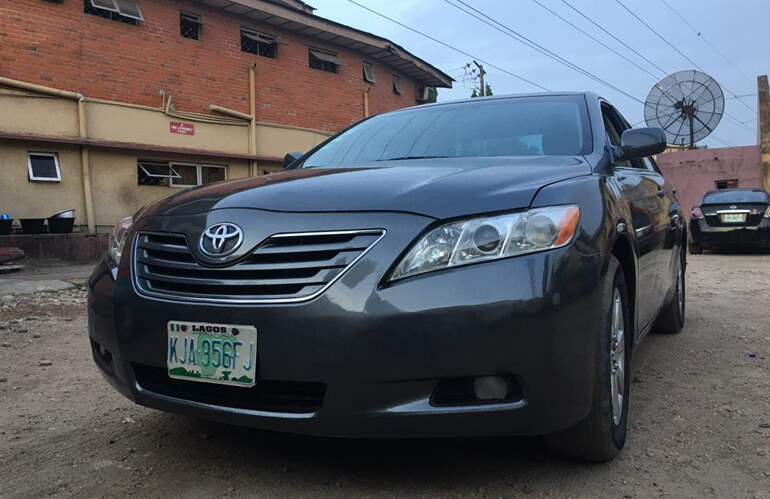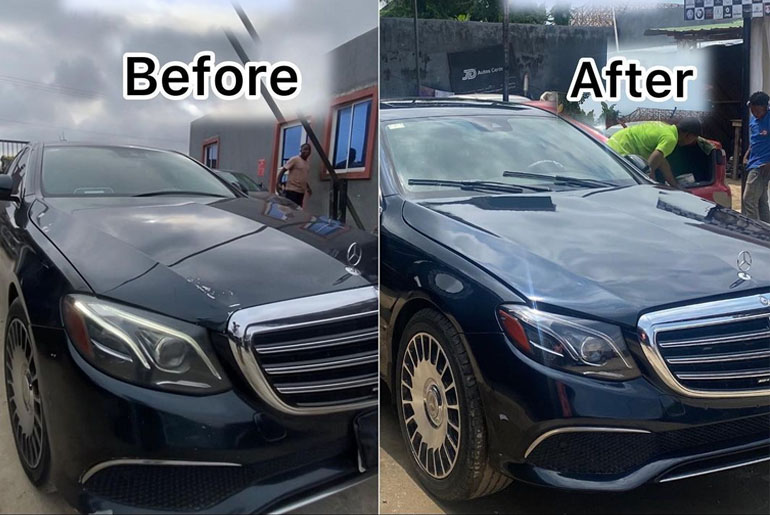- The Toyota Camry is known for its reliability. The 2.5-litre 4-cylinder engine often lasts into high mileage territory.
- That doesn’t mean it never has issues. There are common problems associated with this Camry engine type car buyers in Nigeria should always be aware of before making the buying decision.
Toyota’s 2AR-FE is a 2.5-litre four-cylinder used most commonly in the Toyota Camry and RAV4. It’s been around since 2008 and has proven to be smooth, reliable, and fuel-efficient. Sure it may lack the power of a V6, or even many newer four-cylinder engines. But its strong suit is dependable, low-cost operation.
Table of Contents
Like every engine, there are a few issues to watch out for. According to experts, the three most common are minor but worth checking out, and we look at those issues in this article.
Toyota 2AR-FE Specifications and Info
The 2AR-FE engine was produced by Toyota from 2008 to 2020. Displacing 2.5-liters it’s one of the larger four-cylinder engines on the market making it ideal for larger vehicles like the Toyota Camry and RAV4. It produces between 169 and 180 horsepower and around 170 lb. feet of torque.
The AR family of Toyota engines is still in production and used in conjunction with hybrid powertrains on many vehicles. It features variable valve timing and an aluminium block with cast iron cylinder liners. Where it shines is fuel efficiency and longevity coupled with low operating costs.
Top Three Common Toyota Camry 2.5-litre 4-cylinder Engine Problems
Even though the 2AR-FE four-cylinder is a dependable, long-lasting engine, there are three problems to watch for.
- The Water Pump Failure
Water pumps are a part that eventually wears out on all engines. When they start to go bad, they typically begin to leak coolant. More seriously, however, they can fail internally, either by seizing up or coming apart. As a result, the vehicle can quickly lose coolant and overheat.
If the water pump fails, you’ll see the temperature gauge rise quickly and you may hear a grinding or screeching noise from under the hood. If that happens, you’ll want to pull over to a safe location as quickly as possible and turn off the engine. It’s best to avoid running the engine until the water pump is replaced.
- Camry and RAV4 Transmission Problems
The second problem isn’t an engine problem at all. Instead, it has to do with the transmission.
The transmission is part of the drivetrain but is a separate component from the engine. On some Toyota Camrys and RAV4s, the transmission’s torque converter may act up for failure. When this happens, you may notice the transmission slip or hesitate. It may also shift roughly when accelerating or coming to a stop.
Often caused by poor maintenance, the Camry and RAV4 transmission problems affect a small number of vehicles. Transmissions, like many mechanical components, need regular service to maintain their performance and extend their life.
- Engine Knocking Sounds
Engine knocking is caused by several issues. Some of these problems may be minor but there are a few that can be serious. In the case of the Toyota 2AR-FE, engine knocking is minor and hardly worth mentioning. Still, it’s one of the most common Camry 2.5 Liter 4-cylinder engine problems.
Typically, engine knocking sounds on the 2AR motor involve the timing gears for the variable valve timing. The knocking occurs when the engine is cold and goes away in less than a minute.
If you have concerns about the engine knocking sounds, it’s a good idea to get your engine checked out by a Toyota dealer or certified mechanic. If nothing else, it will give you peace of mind.
Should I Still Buy a Toyota Camry That Uses this Engine?

If dependability, good fuel economy, and getting from point A to B are your priorities, the answer is absolutely yes. Tuning Pro groups it among the most reliable engines it’s ever covered and the problems on this list are either minor or only affect a small percentage of Toyota vehicles.
All cars eventually have problems and need repairs. But the keys to longevity come down to two things:
- Quality of design and build: The design of the vehicle, including mechanical components like the drivetrain plays a significant factor in its longevity. Vehicles that have a high number of problems, or more than a few expensive repairs rarely last as long as a trouble-free vehicle.
- Vehicle Maintenance: One of the constant laws of car ownership is that a well-maintained car is always more trouble-free and reliable than a poorly maintained one. It doesn’t matter what vehicle it is. Virtually any car runs better, lasts longer, and costs less to own if properly cared for.
Conclusion
While we can’t vouch for the maintenance of individual vehicles, we can say that the Toyota Camry and the RAV4 with the 2AR-FE are among the best-built, most reliable vehicles on the road. Properly cared for, they routinely last more than 200,000 miles without any major issues.







